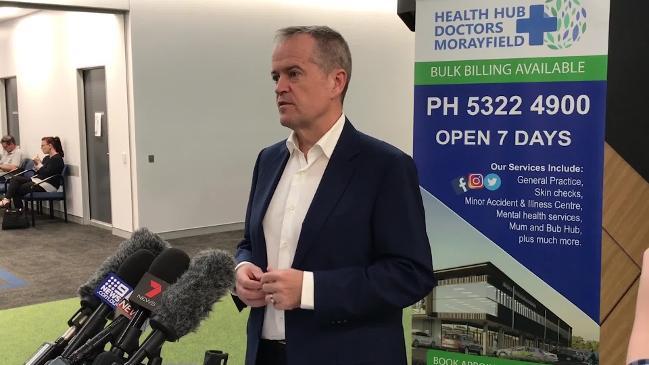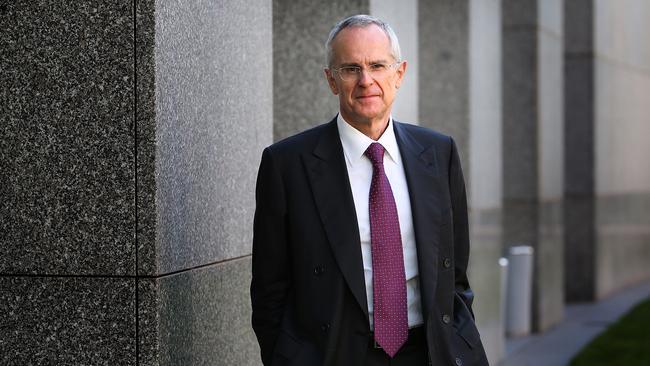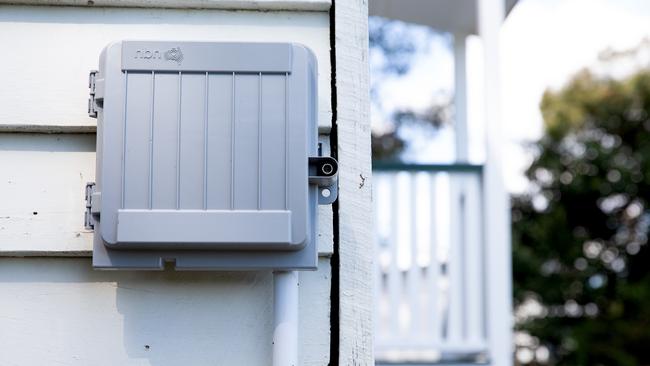Almost one in three Australian broadband services still too slow, ACCC report finds
ANGRY customers are being lumped with inadequate broadband connections, with almost one third of services falling short of their maximum download speeds.

Technology
Don't miss out on the headlines from Technology. Followed categories will be added to My News.
ALMOST one in three Australian broadband users is still receiving significantly slower download speeds than their plans indicate, and seven per cent of users are getting less than half the top speed on offer, according to the latest broadband report card from Australia’s competition watchdog.
The third Measuring Broadband Australia report from the Australian Competition and Consumer Commission did show NBN connections and congestion had improved over last year, however, and recognised smaller internet service providers TPG and Aussie Broadband for providing the fastest broadband connections over the last quarter.

The broadband report, which tested 950 NBN and ADSL services supplied by 15 internet providers in Australia, showed 31 per cent of Australian internet services still fell short of achieving the top speed listed by their internet provider.
And seven per cent of internet users surveyed were unable to receive even half of their plan’s maximum download speed.
READ MORE: Top financial firm describes NBN as an unviable investment
ACCC chairman Rod Sims told News Corp the result showed both NBN Co and internet providers still had “a lot more work to do” to improve internet speeds despite gains made over the past year.
“We do still have problems given that seven per cent of people are getting less than 50 per cent of the maximum speed on their plans,” he said.
“That may still be above what they were getting on ADSL but it’s not good enough.”
Mr Sims said the report showed 24 per cent of Australian internet users were only getting 60 per cent of their broadband plan’s top speed and, while the Commission had classified that as a “working broadband service,” it would consider revising that guideline in future.
“Over time, we really want virtually everybody getting 90 per cent of their maximum plan speed,” he said.
Mr Sims blamed poor quality HFC and “impaired fibre-to-the-node connections” to the NBN for some speed issues, as well as internet providers whose advertised speeds and technical capabilities had yet to be checked by the ACCC.

The report, which was prepared by UK firm SamKnows, named TPG, Aussie Broadband, and iiNet as providers delivering the fastest broadband connections, followed by Optus, Telstra, and MyRepublic.
It also found congestion was only slowing broadband connections by one per cent during peak hours, and NBN and ADSL broadband in urban areas outperformed similar services in regional areas by just 1.8 per cent.
But the Communications Alliance, which represents a host of telecommunications companies, criticised the report for measuring broadband performance against a plan’s top speed rather than its advertised speed, claiming providers were doing a better job than the report indicated.
“This is unfortunate, given that the ACCC has issued guidance … that providers should not make claims around maximum plan speeds,” chief executive John Stanton said.
Originally published as Almost one in three Australian broadband services still too slow, ACCC report finds


